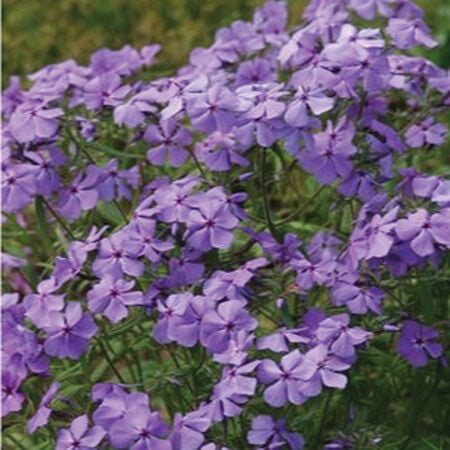Divaricata, Phlox Seed
Key Attributes
Key Attributes
Product Details
Weight
0.01Depth
0.1Height
4.5Width
3.25Plant Height
2-4'Botanical Name
DivaricataSeed Type
SeedAdditional Characteristics
Attracts Pollinators, Ground Cover, Deer ResistantSeeds Per Gram
441Seeds Per Pound
200,000Packet
10 SeedsSow Depth
1/8"Seeds Per Ounce
12,500Breed
Open-pollinatedSun
Full SunLife Cycle
AnnualSow Method
TransplantCategories
FlowersDays To Maturity (# Days)
58Components
Growing Instructions
![]() Learning Download: How to Grow Phlox
Learning Download: How to Grow Phlox
Phlox adds an array of color to the garden and has fragrant blooms. It will bloom beautiful star-shaped flowers.
Before Planting: Plant Phlox indoors up to eight weeks before the last spring frost.
Planting: Once the seedlings have sprouted, move the container to a bright area and remove the plastic. Seedlings are ready to transplant after the last frost in the area. When transplanting, space the seedlings 10 inches apart.
Watering: Phlox should be watered regularly during its growing season.
Fertilizer: Phlox does well in tough-growing conditions, but it can benefit from an early application of fertilizer in the spring.
Days to Maturity: Phlox will begin to bloom 50-65 days after sprouting in early spring.
Harvesting: To save the seeds, allow a few blooms to remain on the plant until they have died. The seed pod will remain once the petals fall away. Cut the pods off the plant and place the pods in a paper sack to store indoors while the seed pods dry. Break open the pods and keep the seeds in a paper envelope until ready to plant the following year.
Tips: To encourage a second bloom in the same season, cut the plants back after the first flowering. Also, cut the plants back before winter so new growth returns in the spring.
Shipping Schedule
Our Seed Promise
 "Agriculture and seeds" provide the basis upon which our lives depend. We must protect this foundation as a safe and genetically stable source for future generations. For the benefit of all farmers, gardeners and consumers who want an alternative, we pledge that we do not knowingly buy or sell genetically engineered seeds or plants.
"Agriculture and seeds" provide the basis upon which our lives depend. We must protect this foundation as a safe and genetically stable source for future generations. For the benefit of all farmers, gardeners and consumers who want an alternative, we pledge that we do not knowingly buy or sell genetically engineered seeds or plants.
The mechanical transfer of genetic material outside of natural reproductive methods and between genera, families or kingdoms, poses great biological risks as well as economic, political, and cultural threats. We feel that genetically engineered varieties have been insufficiently tested prior to public release. More research and testing is necessary to further assess the potential risks of genetically engineered seeds. Further, we wish to support agricultural progress that leads to healthier soils, to genetically diverse agricultural ecosystems, and ultimately to healthy people and communities.
To learn more about the "Safe Seed Pledge" please visit www.councilforresponsiblegenetics.org.

